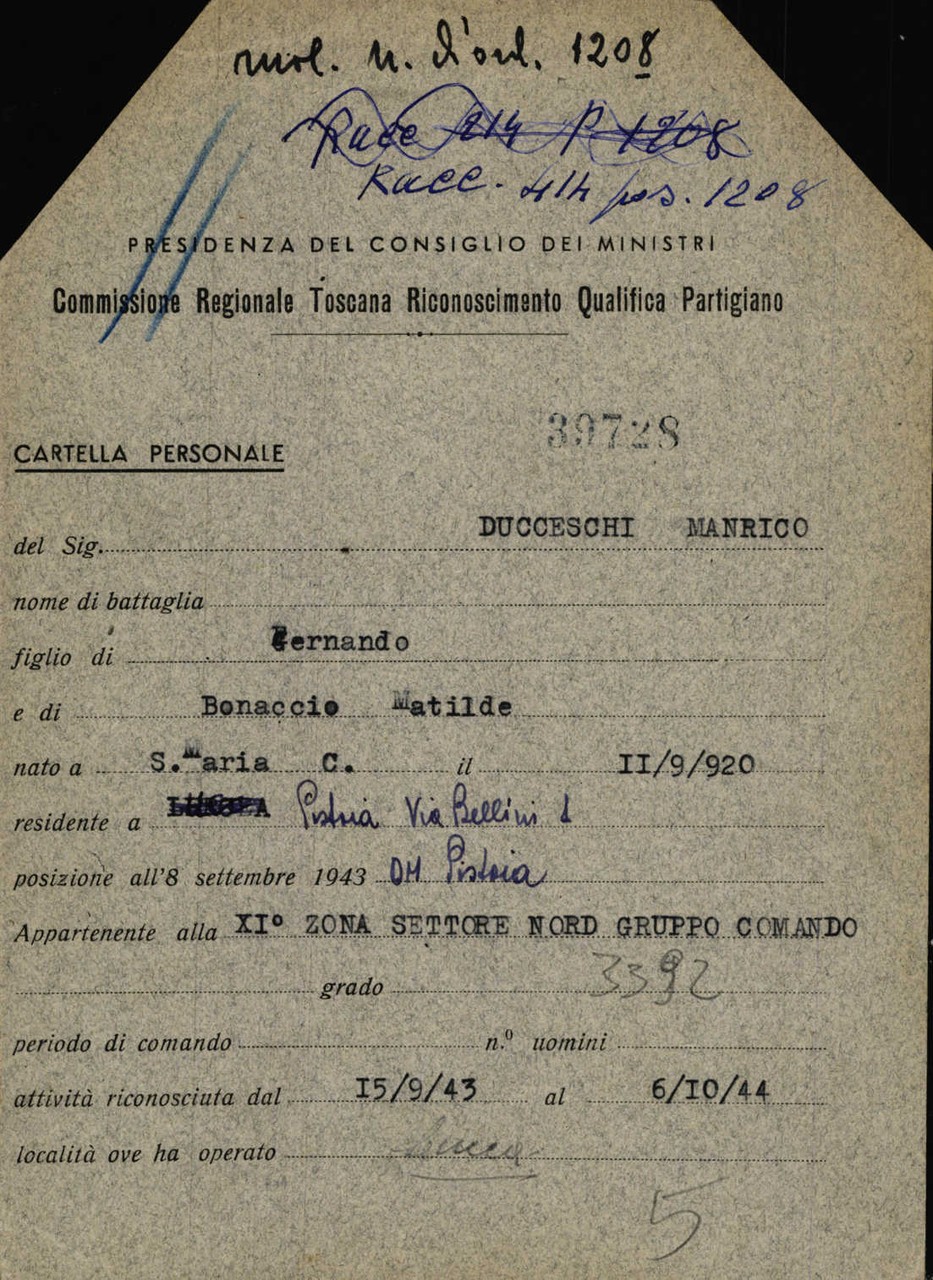Manrico Ducceschi was born in Capua (CE), the son of Fernando, an aviator from Pistoia, and Matilde Bonaccio, a housewife. He completed his middle and grammar school studies in Pistoia where he attended the Liceo Classico Niccolò Forteguerri. He then graduated from the Liceo Classico Niccolò Machiavelli in Lucca and enrolled in the Faculty of Literature and Philosophy at the University of Florence.
With the outbreak of war, he was called up for military service. He was in Tarquinia when the Armistice was announced. He managed to return to Pistoia, then headed to Florence to resume contacts with the Partito d'Azione (Action Party). He was sent to the Pistoia mountains to organise the first Resistance units. First, he assumed the battle name of 'Pontino', then that of 'Pippo' by which he was always remembered, in homage to Giuseppe Mazzini. Initially, his tasks were both organisational in nature, with the collection of weapons and the building of networks of collaborators and informers, and sabotage. He established his headquarters at the Alpe delle Tre Potenze. His formation, divided into sectors, groups and detachments, acted in a large territory of the Gothic Line that stretched from the Val di Lima to Abetone, from the Modena Apennines to Garfagnana and the Serchio valley, from Svizzera Pesciatina to Valdinievole.
On 16 March 1944, it took on the official name of 'National Liberation Army - XI Military Zone Patriots'. Ducceschi defended the plurality of political origins of his partisans, around 700, and guaranteed the formation an apolitical character: this caused quite a few contrasts with the Partito d'Azione and the Tuscan National Liberation Committee. He was in constant contact with the US Office of Strategic Services and received a number of airdrops of weapons and ammunition. One of the main operations was the interception of a car carrying Japanese naval rear admiral Tōyō Mitsunobu on his way to Switzerland after holding a conference in Montecatini Terme. He was in Pianosinatico on the Abetone and Brenner Highway 12 when he was attacked and murdered on 8 June 1944. A number of important documents were recovered as part of military operations in the Pacific Ocean. Later, Pippo's formation joined the Allies in their advance towards northern Italy, contributing to the Liberation of some Emilian towns and pushing as far as Milan.
Manrico Ducceschi was decorated by the Americans with the Bronze Star Medal of Military Valour. The partisan was found hanged in his home in Lucca on 26 August 1948, having died two days earlier. On 28 August, a solemn funeral was held in Lucca with a picket guard rendering military honours. A street in Pistoia and one in Lucca were named after him.
